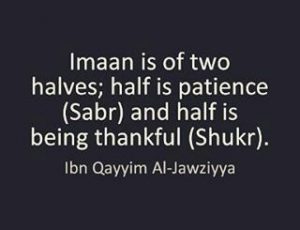Question
My father concluded a marriage contract with a distant relative without consulting my sister. On hearing the news, she became hysterical and refused to have anything to do with the man, who is a second cousin. Did my father act in accordance with the Shariah? If not, what is the way forward?
Answer
A woman cannot be married against her will. A forced marriage is not valid in Islam. If she is a maiden and keeps (meaningful) silent when consulted, then her silence depicting modesty, is taken as her consent, unless she utters her disapproval. If she is not a maiden (divorcee or widow) she must proclaim her stand to the proposal. A Hadith of the Prophet (S) says that the non-virgin shall not be married until she consents to it, and the virgin shall not be married until her permission is sought (The Hadith, Sahih Muslim 3303, Kitab an_Nikah).
A woman who was married off by her father without her consent complained to the Prophet (S), who then gave her the right to confirm or revoke the marriage. The lady then remarked that though she accepts the partner chosen for her by her father, yet she wanted to establish the fact that fathers have no right in Islam to marry off their daughters without their consent (The Hadith, Al_Bukhari vol. 9, no. 194).
Islam regards marriage as natural rights of the individual. Khansa’ Bint Khidam said, “My father married me to his nephew, and I did not like the match, so I complained to the Messenger of Allah (S). He said to me ‘accept what your father has arranged.’ I said to the Prophet (S): ‘I do not wish to accept what my father has arranged.’ He said: ‘then this marriage is invalid, go and marry whomever you wish.’ I said: ‘I have accepted what my father has arranged, but I only wanted to establish that fathers have no absolute right in their daughter’s matters (i.e., they have no right to impose a marriage partner on them)’” (The Hadith, Al_Bukhari vol. 9, no. 194; Fathul Bari Sharah; Ibn Majah vol. 1, no. 602, Kitabun Nikah).

In another narration Khansa’ reported that, “Her father gave her away in marriage, and she was a thayyib, and she did not like it. So she came to the Messenger of Allah (S) and he annulled her marriage” (The Hadith, Bukhari vol.67, no. 43). Thus, a woman has the choice of repudiating a marriage to which she is not a consenting party.
The word thayyib includes a woman whose husband has died and a woman who has been divorced. From the foregoing narration, we realise that initially the Prophet (S) told Khansa’ to obey her father as expected in any parent-child relationship. Also, the concerns of fathers for the well-being of their daughters is well known and unquestionable. But when the Prophet (S) realized that the father wanted to force her into a marriage against her will, he gave her the freedom of choice. Accordingly, she was saved from the oppression of a father who had wanted to force his daughter into a reluctant marriage.
Many are those who think that Islam prefers, encourages or recommends marriage between cousins. In Islam, the decision to marry a cousin is a special right available only to the individual. Indeed, the Prophet (S) has recommended marriage outside one’s own family, clan or tribe. This is to encourage closer inter tribal relations, more cohesive society and the birth of healthy children. There are advantages and disadvantages to every type of marriage, but generally speaking, inter family marriages should not be the norm so as to carry over from one generation to another. Otherwise, it is bound to make hereditary traits and weaknesses more pronounced among children.
What is more worrying about our lady in question is that her father arranged the marriage engagement without taking her views into account. Muslim scholars say that a father may ‘arrange’ the marriage for his maiden daughter without consulting her. However, itt needs to be clarified that this arrangement relates mainly to the validity of that marriage, and not to its desirability or wisdom. For indtance, a woman once complained to the Prophet (S) that her father married her to a cousin. And that the father felt the marriage will give him a better social status. The Prophet (S) immediately annulled the marriage, because it was intended to bring a benefit to the father without any due regard for the woman’s feelings or situation. Thus, she had been treated as a mere commodity exchanged for a position of honour.
Again, concerning the girl in question, it is being told that her father was being given a flat in exchange for the girl’s marriage. In the circumstances, if the girl consents to the marriage, then the said flat would be the dower for the girl, and not her father. On the whole, the engagement seems to be in fulfilment of promises, which should not have been made in the first place. Parents have a prime responsibility to ensure that both couples are compatible and should not arrange a marriage merely for their own social or parochial interest. The Prophet of Allah (S) gave the strictest orders in relation to the rights of others. He said, “Truly Allah has totally forbidden disobedience to mothers, burying alive daughters, withholding the rights of others, and demanding that which is not your right” (The Hadith, Muslim 4257).
Bibliography
Ghisu, M. S. (September 28, 2005). What does Islam say about forced/arranged/love/. The Revival, issue 3. Retrieved November 23, 2017 from http://www.therevival.co.uk/forced-arranged-love-secret-marriages
Mahama, A. (1996). The Muslim family life. Accra: The Call Consult.
Sabiq, S. (1990). Fiqh as Sunnah (Arabic text), vol. II. Cairo: Dar ar Rayyan.
Stack Exchange Inc. (2017). Is forced marriage to a religious man allowed? Retrieved November 12, 2017 from https://islam.stackexchange.com/questions/12042/is-forced-marriage-to-a-religious-man-allowed
